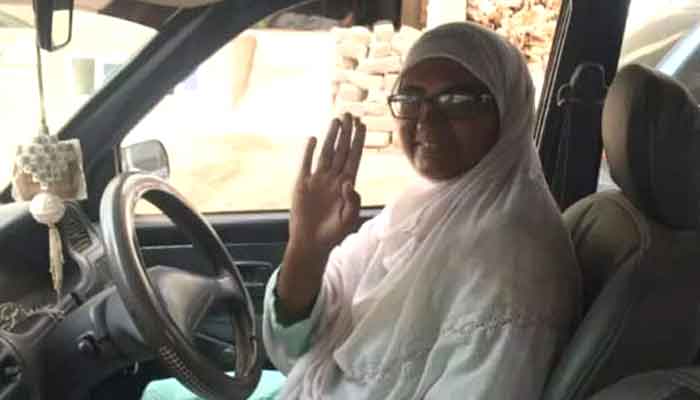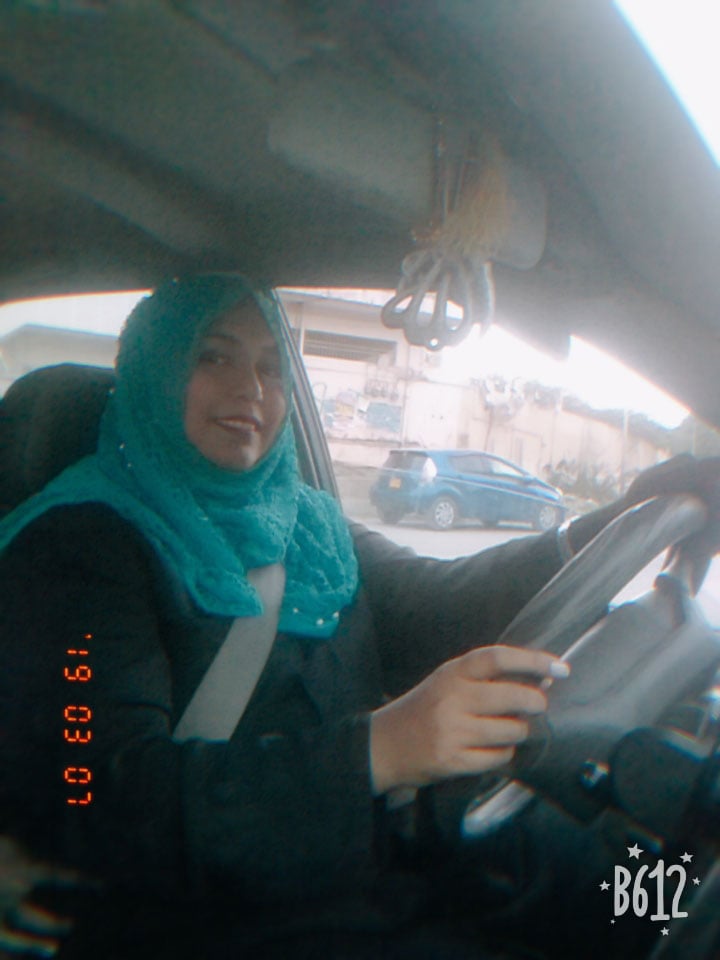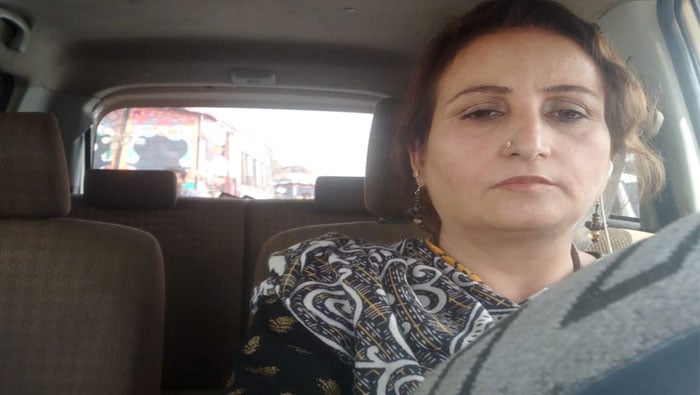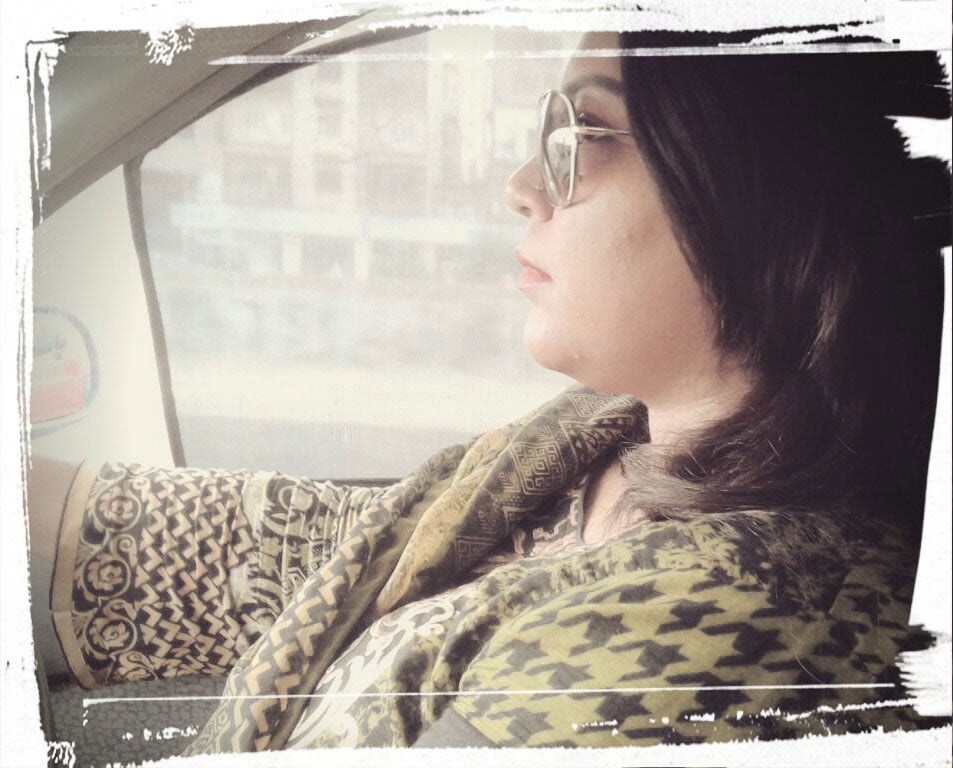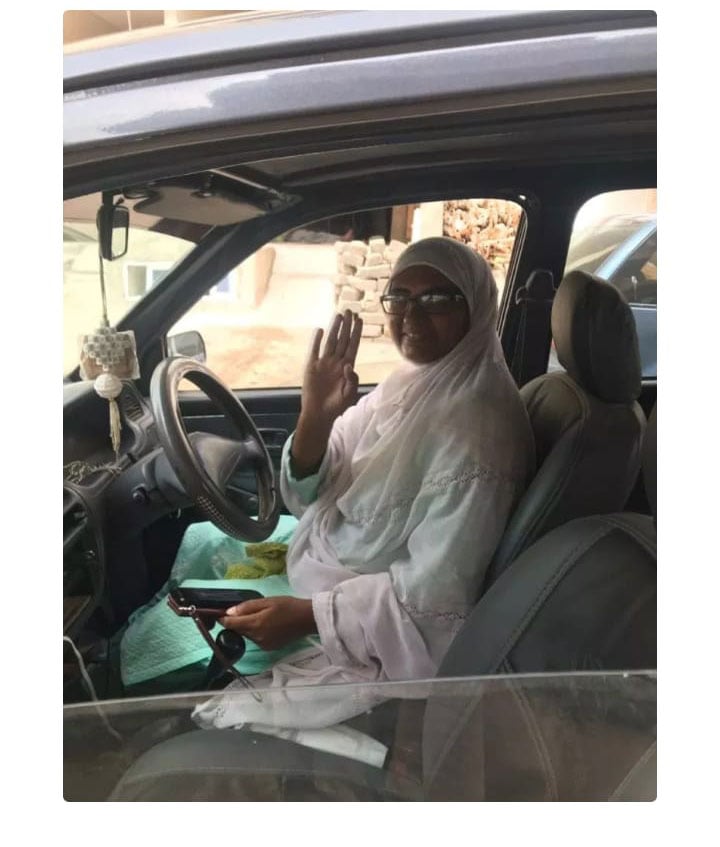Fast and professional: Women behind the wheel
As a female captain of Pakistan's largest app-based transportation service, Bina is allowing people in her ultra-conservative society to recognise her for the work she does. Her excellent driving skills help her dwarf the voices that say women can't be good drivers.
"You need mobile data in your Smartphone and petrol in your car to become a Careem captain," said an impassioned Bina Asif who has been driving on Karachi's clogged streets since June 2017.
As a female captain of Pakistan's largest app-based transportation service, Bina is allowing people in her ultra-conservative society to recognise her for the work she does. Her excellent driving skills help her dwarf the voices that say women can't be good drivers.
Bina recalled the time when she showed no scruples in giving a hard time to a race-ready modified car which tried to get ahead of her small Alto. Upon seeing her amazing driving skills, the male passenger inquired about the driving school she went to.
"I was only using a road trick," she said happily. "But I love driving. I like sitting behind the wheel". Adjusting her purple scarf, she added that there had been numerous times when a male passenger would sit on the front seat to help her in case she found it difficult to navigate her way.
"'How will you help me while sitting on the passenger seat with no gears on your side?' I genuinely ask". Before venturing into the world of algorithms and apps, Bina used to run a driving school in the North Nazimabad neighbourhood of Karachi. She was introduced to the service by her student who was working part-time in another app-based transportation.
After having a satisfying experience, Bina reduced her driving school operations and now only takes one student per week. Her entire focus is on picking and dropping Karachiites, completing her minimum rides as the clock ticks away. "I have enough money to run my household. While my eldest son has passed matriculation, I have finally admitted my younger children in schools". As if the memories of the past were waiting for a cue to surface, the cheerful Bina couldn't hold her tears as she remembered the difficult times she went through.
Bina had her own challenges. Her happily married life ended in a divorce when she decided to leave her addicted husband. "I have done a lot of hard work," she said. "My ex in-laws are rich. I used to live in a 2,000 sq yard place. But my husband was a drug addict. He would spend all his money on drugs. When I had had enough, I decided to leave him". It happened five years ago.
"From a 2,000 sq yard place, I shifted to a one-bedroom apartment. It was difficult, I had no money to send my younger children to school". Wiping her tears, and with a renewed energy, she added, "But they are back to school. I have finally shifted to a much bigger apartment. I have done all on my own".
Shifting the focus back on her experience as a captain, Bina shared how several people treat her once they get to know that a female captain has arrived to pick up the passenger, "Once an entire family came out of their house to have a look of me". While laughing she added, "It's strange for them to see a woman in the transportation industry."
But sometimes such cultural attitudes can be hurtful. "A woman to whom I was assigned for a ride gave me a two-star rating [a system Careem has introduced to encourage captains to provide better services] because she didn't like women choosing driving as a profession".
Unlike Bina, Naila, who asked that her last name not be used, never met a passenger who criticised her line of work. The single mother has been associated with Careem since the beginning. In 2004, when she was in Dubai, she learnt how to drive. Previously, to run her household, she did different jobs, including stitching and working as a chef. When Careem began recruiting women in its workforce, Naila was among the first who applied for registration.
"The process wasn't easy. I went through background checks. I had to submit a character certificate and get my car's paper attested". Naila added that after her registration, she had no regrets. "My earnings are enough to meet monthly expenses and pay off the monthly instalment of my car loan". Talking about the kind of passengers she has driven around the city, and around Lahore, she said that it was only once when a mildly inebriated passenger sat in her car. "He tried talking to me, offered me a can of cold drink which I denied, and was a little off.
"He asked if he can 'talk with me' to which I said that I didn't see any reason for the two of us to have a friendly chat – we had nothing to talk about". It was probably her mannerism which made him panic as he asked her to end the ride right there. "He was remorseful, that I can tell".
But not all passengers are same. "There was a couple who booked a ride and I happened to be their captain. The man asked his wife to sit on the front seat. He came to my side of the car and stood there for a minute to salute me". The kind gesture of the stranger brought tears to her eyes, she recalled. "He told me that he was happy to see women in his country entering into different fields".
In a dangerous city like Karachi which is famous for its rising crime rate, Naila used to be a little cautious while accepting rides whose drop-offs were in far areas. "I consciously made an effort to stop being unafraid. I told myself that I am out on the streets to work and I shouldn't limit myself with self-made barriers".
"Careem's helpline offers guaranteed response time. So if we face any issue, we can contact the call centre," Beenish Fazal added. Beenish used to teach Economics at a private A Levels school. But the pay wasn't good and the long working hours created a great deal of job stress. "My children also need me. Now, I can spend more time at home."
While talking about her experience, she said that she never had any major issues on the streets. "I have to complete at least four rides in three hours. I take around four to five hours to meet the target. Then, I'm back home".
Beenish joined the service in December 2017 and the idea of being her own boss still excites her. "I am not answerable to anyone. I have to finish my work and call it a day". She also mentioned how she didn't have to bring any work home and once she has logged out, she is free for the day. "On days when the city is packed with the traffic and it takes hours to cover even short distances, I spend more time online. But that is rare".
Celebrating the stress-free environment that Careem offers, Asma Shakeel, who registered with the company in October 2017, shared, "A couple of weeks back, I sent my car for repair work. I didn't work for a week. But I wasn't under any pressure".
Asma joined the workforce after her husband had a heart attack. Now a widow, Asma remembered the time when she was left alone to bear the responsibility of running a household. "Not a single soul is there for teary eyes. Everyone is with you during your happy days. It is you who have to take care of yourself, fight your bad times and come to your own rescue. One has to get up, go out and fix everything".
Asma mentioned that while driving in Karachi is a bit daring, it was Lahore's traffic that gave her a difficult time. "Cars were coming from every direction", she laughed. Talking about her monthly income, Asma didn't mention any amount but expressed that her pay helps her to cover monthly expenses. "One of my sons study at a private university. I can afford his fee as well", she added with visible pride in her voice.
Asma doesn't have any qualms about accepting a ride of so-called high risk areas. She has travelled to one corner of the city to the other, "Bad things can happen anywhere. No area is dangerous. I go everywhere". During Ramazan, Asma prefers to drive after Iftar. "There are not many rides during the day time", she added. "Many women would book a ride after Iftar to go for shopping. With Careem, they don't need to rely on their husbands or fathers".
That women are making their way into the fast booming ride-hailing industry (Careem alone boasts paying $2 billion in wages across all its countries of operations) that it is a win for all stakeholders involved. Where the platform has become a good source of income for women, it, along with other app-based transportation services, has also enhanced women's mobility across Pakistan.
Dr Shaista Ali, a UAE-based public health activist, frequently visits Pakistan. The launch of ride-hailing app in the country provided her some relief and she called it a convenience "for people like us who don't have access to transportation. It is easy to book a ride through phone". She, however, didn't have the experience of riding with a female captain.
Her experience of using the service in Islamabad wasn't too good as a majority of captains weren't familiar with the city. "Lack of professionalism, arriving late at destination and not reaching the destination at all caused a great deal of stress". However, she added that "for the 70 percent of the time I used the service, the experience was good. But factors like network issues would cause unnecessary trouble".
Sidra Amin, an engineer in Peshawar, believes that Careem is a blessing. "Women's mobility in Peshawar was virtually non-existent [There are no female captains in the city]. You had to use public transport, rickshaw, taxis and buses". But that was not enough. This was because the number of buses was insufficient to meet the ever-increasing demands of residents. "Buses do not run on all routes. On the other hand, taxis and rickshaws are not safe. So this is like a blessing".
Sidra mentioned that a reliable tracking system makes the app even safer. "Captains arrive at your doorstep to pick you up. The concept of independence that was unheard of in this part of the world as there was so much dependence on others has finally found its place. The heavy reliance on a male figure for even the smallest things is now vanishing". In her opinion, people trust this service and they are more open to using it. Women can participate in the workforce; they can use the service to go to their offices. If they are travelling late at night, they can use the service".
Pakistan's public transportation system is in a shambles. Many women experience harassment and discrimination in public transport.
European student Valeria Lauricella visited Pakistan in 2017, during the two months she spent in Karachi, she "discovered the difficulties of public mobility for women in the city". According to her, "the country's transportation system is terrible for foreigners. Although I wished to take public transports to move around the city, everybody highly recommended me not to use it. I just took a few rides alone by rickshaw during the day time; everybody looked at me, but it was completely fine to do it".
Valeria relied on app-based transport services for her travelling across the city. "I used the system the 80 percent of the time and it was very good". Sharing her views on women's mobility, she expressed, "I think a safe transportation system helps women's mobility in the city, but women should be able to move around alone, with or without rickshaws and cabs, also by bike or on foot".
For Motia Nisar Ahmed Mangi, a Karachi-based feminist and a former teacher, the app-based services like Uber and Careem are a good option to use when you are a tourist in another city. Motia who visits Lahore frequently had to pay an upward of Rs35,000 to rented cars if her trip lasted more than a week. "The per day charges were Rs3,000 excluding petrol. And the worst part was that the driver would be off duty in the evening. So we would be stuck in our homes with no option to move around. With Uber/Careem, things have gotten a lot better", she said.
"Booking a ride is extremely convenient. A proper tracking system ensures safety and app-generated charges mean that you don't have to haggle".
-
Security forces gun down 30 terrorists in multiple IBOs in KP: ISPR
-
MQM-P calls for new province in Sindh
-
US report validates Pakistan military edge over India: PM
-
Banned TTP poses serious threat to Pakistan security: UNSC panel
-
CM Afridi clarifies remarks on by-poll after ECP requests army deployment
-
Dubai sees 3.2m Pakistani passengers in 2025 as airport sets new milestone
-
Security forces kill 23 Indian proxy terrorists in KP's Kurram
-
Pakistan to construct island to boost oil exploration: report
